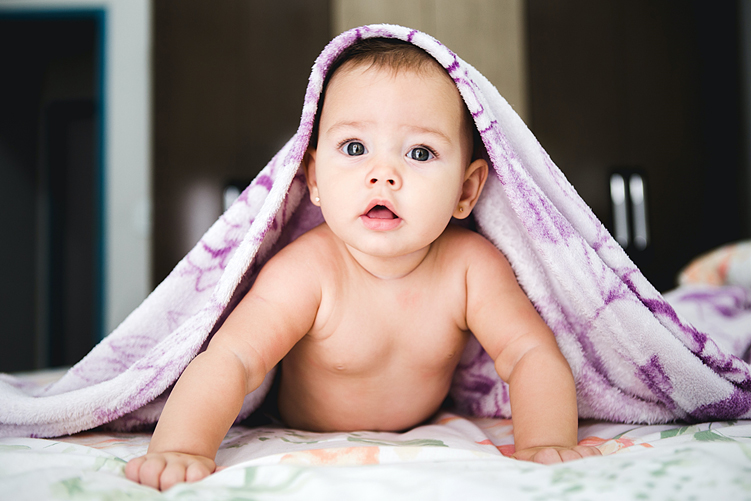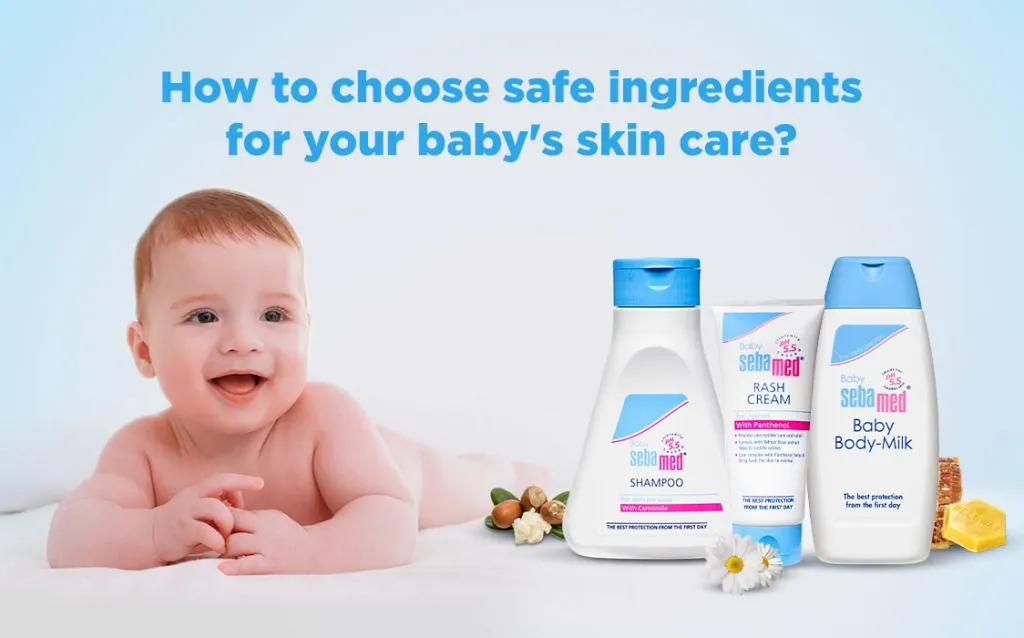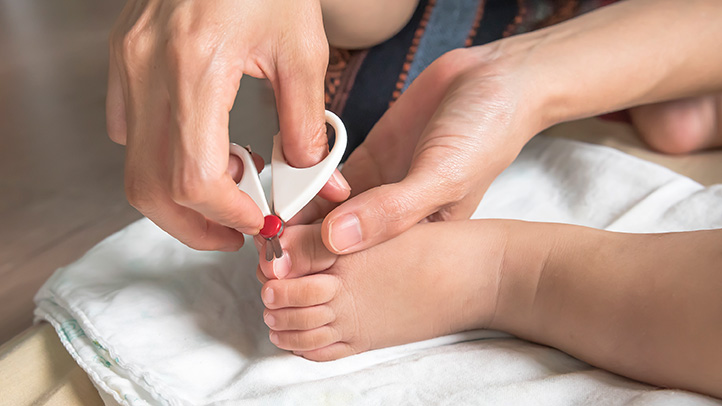Choose baby hygiene products with natural ingredients and hypoallergenic properties. Ensure products are pediatrician-tested and free from harsh chemicals.
Babies have sensitive skin that requires special care. Parents should select hygiene products specifically designed for infants. These products should be free from harmful substances like parabens, sulfates, and artificial fragrances. Opt for items with natural, gentle ingredients to avoid skin irritations and allergies.
Pediatrician recommendations and reviews from other parents can be valuable resources. Reading labels carefully helps ensure the safety of the products. Proper baby hygiene products support healthy skin and overall well-being. Investing time in choosing the right items can make a significant difference in your baby’s comfort and health.

Credit: www.zoobop.com
Importance Of Baby Hygiene
Keeping your baby clean is very important. Babies have sensitive skin and developing immune systems. Proper hygiene keeps them healthy and happy. Choosing the right baby hygiene products is crucial. It helps avoid skin irritations and infections.
Health Benefits
Good hygiene has many health benefits for babies. It ensures clean skin and prevents diaper rashes. Clean skin helps in the proper growth of your baby.
- Healthy Skin: Proper hygiene maintains the baby’s skin health.
- Better Sleep: Clean babies sleep better and are more comfortable.
- Improved Mood: Clean babies tend to be happier and more active.
Preventing Infections
Keeping your baby clean is key to preventing infections. Baby hygiene products help in maintaining cleanliness. Regular baths and clean diapers are essential.
- Use gentle baby soaps and shampoos.
- Change diapers frequently to avoid rashes.
- Clean baby’s hands and face regularly.
Types Of Baby Hygiene Products
Choosing the right baby hygiene products is vital for your little one’s health. Babies have delicate skin and specific needs. This guide will help you understand the different types of baby hygiene products. Let’s explore some essential categories.
Bathing Essentials
Bathing is a crucial part of baby hygiene. Here are some must-have bathing essentials:
- Baby Shampoo: A gentle, tear-free formula to clean your baby’s hair.
- Baby Soap: Mild and hypoallergenic soap to keep the skin clean.
- Baby Bath Tub: A safe and comfortable tub for bathing your baby.
- Baby Washcloths: Soft cloths to gently clean your baby’s skin.
- Baby Lotion: Moisturizes and protects your baby’s delicate skin.
Diapering Needs
Diapering is another critical aspect of baby hygiene. Here are some essential items for diapering:
| Product | Description |
|---|---|
| Diapers: | Choose between disposable or cloth diapers. Ensure they are soft and absorbent. |
| Baby Wipes: | Use gentle, alcohol-free wipes to clean your baby’s bottom. |
| Diaper Rash Cream: | Apply cream to prevent and treat diaper rash. |
| Changing Pad: | A clean, soft surface for changing diapers. |
| Diaper Pail: | A pail to dispose of dirty diapers and keep the nursery odor-free. |
Ingredients To Avoid
Choosing the right baby hygiene products is crucial for your baby’s health. Knowing which ingredients to avoid can help you make safer choices. Here are some key ingredients to steer clear of in baby products.
Harmful Chemicals
Some chemicals can harm your baby’s delicate skin. Here are a few to avoid:
- Parabens: These are preservatives that can disrupt hormones.
- Phthalates: Often found in fragrances, they can cause allergic reactions.
- Formaldehyde: This is a known carcinogen used in some baby soaps and shampoos.
Allergens
Allergens can cause rashes and other skin issues. Watch out for these common allergens:
- Fragrances: Artificial fragrances can irritate sensitive skin.
- Sulfates: These are cleaning agents that can dry out the skin.
- Dyes: Added colors can cause allergic reactions.
Always read labels carefully. Choose products free from harmful chemicals and allergens to keep your baby safe.
Natural And Organic Options
Choosing baby hygiene products can be challenging. Natural and organic options are great choices. These products are free from harmful chemicals. They protect your baby’s sensitive skin. This section explores the benefits and popular brands in natural baby hygiene products.
Benefits Of Natural Products
Natural products are made from plant-based ingredients. They are gentle on your baby’s skin. These products reduce the risk of allergies. They do not contain harsh chemicals like parabens or sulfates. They are eco-friendly and biodegradable.
- Gentle on sensitive skin
- Reduces allergies and irritation
- Free from harsh chemicals
- Eco-friendly and biodegradable
Popular Organic Brands
Several brands offer high-quality organic baby hygiene products. These brands are trusted by many parents. They ensure their products are safe and effective.
| Brand | Product Range | Features |
|---|---|---|
| Burt’s Bees Baby | Shampoo, Lotion, Diaper Cream | Natural ingredients, Hypoallergenic |
| Earth Mama | Body Wash, Balm, Baby Oil | Organic, Non-toxic |
| Honest Company | Wipes, Bubble Bath, Powder | Plant-based, Gentle |
Reading Labels Effectively
Choosing the right baby hygiene products can be tricky. Understanding labels is crucial for making safe choices. This section will help you read labels effectively.
Key Ingredients To Look For
Pay attention to the ingredients listed on the product. Some are beneficial, while others can be harmful. Below are some key ingredients to look for:
- Aloe Vera: Soothes and hydrates baby’s skin.
- Calendula: Reduces inflammation and promotes healing.
- Shea Butter: Provides deep moisturization.
- Coconut Oil: Natural antibacterial and moisturizing properties.
These ingredients are gentle and safe for your baby. Always check for these on labels.
Understanding Certifications
Certifications ensure that the product meets safety standards. Recognize these certifications to make informed choices:
| Certification | Meaning |
|---|---|
| USDA Organic | Contains 95% or more organic ingredients. |
| EWG Verified | Meets strict health and safety criteria. |
| Cruelty-Free | Not tested on animals. |
| EcoCert | Certified natural and organic products. |
These certifications are indicators of quality and safety. Make sure to look for these marks on baby products.
Understanding labels can make a significant difference. Choose wisely for your baby’s safety and comfort.
Expert Recommendations
Choosing baby hygiene products can be challenging. Expert recommendations can help simplify the process. These tips from pediatricians and dermatologists ensure your baby’s safety and comfort.
Pediatrician-approved Products
Pediatricians recommend products that are gentle and safe. Always check for hypoallergenic labels. These products minimize the risk of allergies.
Here are some recommended ingredients:
- Aloe Vera: Soothes and hydrates the skin.
- Chamomile: Reduces inflammation and irritation.
- Calendula: Known for its healing properties.
Avoid products with harsh chemicals. Look for items free from parabens and sulfates. Organic products are a safe choice.
Dermatologist Tips
Dermatologists emphasize the importance of pH-balanced products. Baby skin is delicate and more sensitive. A pH of 5.5 is ideal.
Follow these tips for choosing the best products:
- Choose fragrance-free options to prevent irritation.
- Test a small amount before full application.
- Check for dermatologically tested labels.
Here is a table of recommended and avoided ingredients:
| Recommended Ingredients | Avoided Ingredients |
|---|---|
| Shea Butter | Artificial Fragrances |
| Coconut Oil | Parabens |
| Oat Extract | Sulfates |
Following these expert recommendations ensures your baby’s skin stays healthy and protected.
Cost Vs. Quality
Choosing baby hygiene products can be challenging. Parents often weigh cost vs. quality. It’s crucial to find a balance that ensures your baby’s safety and health. Let’s explore how to make the best choice.
Budget-friendly Options
Many parents seek budget-friendly options without compromising safety. Affordable products can meet quality standards. Look for these features:
- Hypoallergenic ingredients
- No harsh chemicals
- Dermatologist-tested
Here is a table that highlights some budget-friendly brands and their features:
| Brand | Key Features |
|---|---|
| Brand A | Organic, No Parabens |
| Brand B | Fragrance-Free, Safe for Sensitive Skin |
| Brand C | Hypoallergenic, Affordable |
Premium Products
Premium products often come with a higher price tag. These products may offer additional benefits:
- Eco-friendly packaging
- Advanced formulations
- Enhanced skin protection
Parents might choose premium brands for peace of mind. These products often undergo rigorous testing. They ensure the highest safety standards for your baby.

Credit: parenting.firstcry.com
Personalizing Baby Hygiene
Every baby is unique and so are their hygiene needs. Choosing the right hygiene products is crucial for your baby’s comfort and health. Understanding your baby’s specific needs ensures they stay happy and healthy.
Skin Type Considerations
Babies have different skin types, just like adults. It’s important to understand your baby’s skin type to choose the best products.
- Normal Skin: Choose mild, fragrance-free products.
- Dry Skin: Look for moisturizing and hydrating products.
- Sensitive Skin: Select hypoallergenic products with no harsh chemicals.
If your baby has eczema or other skin conditions, consult a pediatrician. They can recommend suitable products.
Customizing Routine
Every baby needs a personalized hygiene routine. Here’s a simple guide to create one:
- Bathing: Bath your baby 2-3 times a week. Use lukewarm water and gentle baby soap.
- Diapering: Change diapers every 2-3 hours. Use diaper rash cream for protection.
- Moisturizing: Apply baby lotion or cream after every bath. This helps to keep the skin soft.
- Hair Care: Wash your baby’s hair 1-2 times a week. Use a mild baby shampoo.
| Hygiene Task | Frequency | Recommended Products |
|---|---|---|
| Bathing | 2-3 times a week | Gentle baby soap |
| Diapering | Every 2-3 hours | Diaper rash cream |
| Moisturizing | After every bath | Baby lotion or cream |
| Hair Care | 1-2 times a week | Mild baby shampoo |
Personalizing your baby’s hygiene routine ensures their comfort. Choose products that suit their specific needs and skin type.

Credit: www.amazon.com
Frequently Asked Questions
Which Is The Most Important Factor When Choosing A Baby Product?
Safety is the most important factor when choosing a baby product. Always check for safety certifications and reviews.
How To Choose Baby Bath Products?
Choose baby bath products labeled gentle, hypoallergenic, and tear-free. Opt for fragrance-free options. Avoid products with harmful chemicals. Check for dermatologically tested items. Consult your pediatrician for recommendations.
What Baby Toiletries Do You Need For A Newborn?
Newborn baby toiletries include gentle baby shampoo, mild baby wash, soft washcloths, baby lotion, diaper cream, and baby wipes.
How Do I Choose A Baby Wash?
Choose a baby wash that is gentle, hypoallergenic, and free from harsh chemicals. Look for natural ingredients and pediatrician recommendations. Ensure it’s tear-free and suitable for sensitive skin. Always read labels and check for potential allergens.
Conclusion
Choosing the right baby hygiene products ensures your child’s health and safety. Prioritize natural ingredients and hypoallergenic options. Read reviews and consult pediatricians for recommendations. Always test new products on a small skin area. Your baby’s well-being depends on thoughtful choices.
Make informed decisions for a happy, healthy baby.

